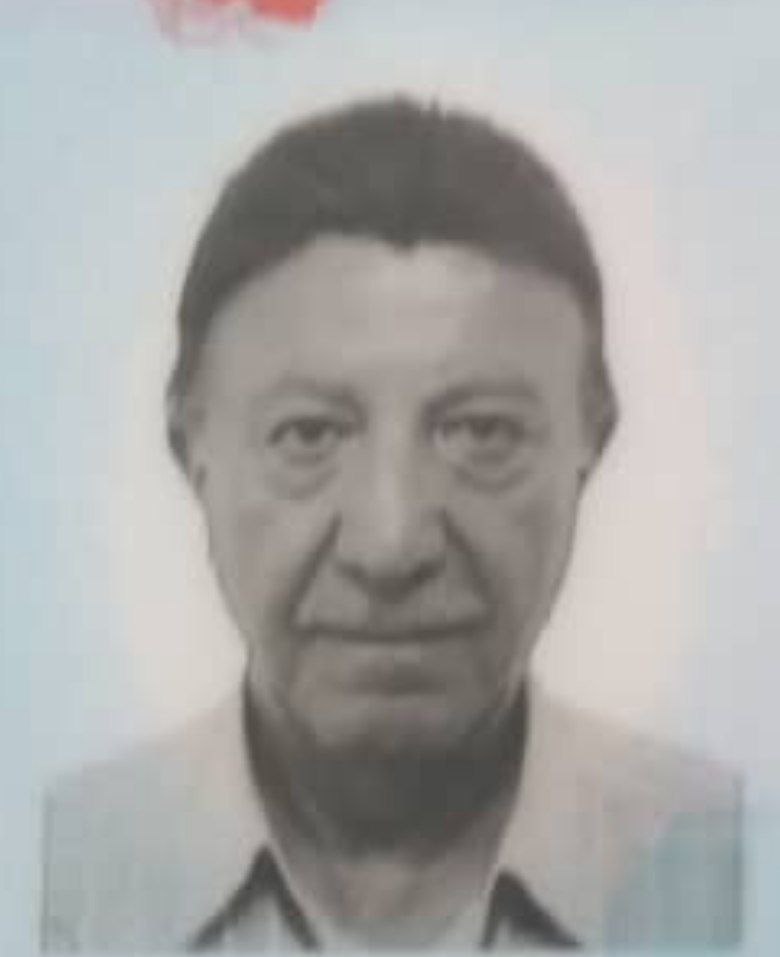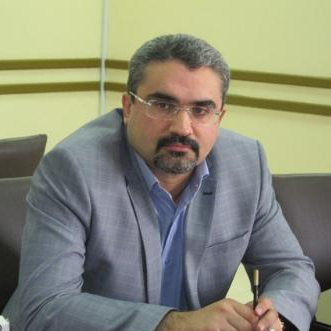Comparison the Effectiveness of Cognitive-Analytical Therapy and Emotional Schema Therapy on Cognitive Emotion Regulation and Worry of Patients with Generalized Anxiety Disorder
Abstract
Background and Objective: Generalized anxiety disorder can cause a decrease of cognitive emotion regulation and an increase of worry. Therefore, the aim of this study was to comparison the effectiveness of cognitive-analytic therapy and emotional schema therapy on cognitive emotion regulation and worry of patients with generalized anxiety disorder.
Methods and Materials: The current study was a semi-experimental with a pre-test, post-test and two month follow-up design with a control group. The statistical population of this study was all students with generalized anxiety disorder of Islamic Azad University of Ahvaz branch and Shahid Chamran University of Ahvaz in 2023 year. The sample size was considered to be 20 people for each group, and these people were selected as samples after checking the inclusion criteria with the purposeful sampling method. The selected samples were randomly divided into three groups of 20 people, and the first and second experimental groups underwent 10 sessions of 90 minutes cognitive-analytical therapy and emotional schema therapy, respectively and the control group remained on the waiting list for training. Data were collected with questionnaires of generalized anxiety disorder (Spitzer et al., 2006), cognitive emotion regulation (Garnefski et al., 2001) and worry (Meyer et al., 1990) and with were analyzed by methods of chi-square, analysis of variance with repeated measurements and Bonferroni's post hoc test in the SPSS-26 software.
Findings: The results showed that there was no significant difference between the generalized anxiety disorder of experimental and control groups in terms of gender, educational level and age (P>0.05). Also, both methods of cognitive-analytical therapy and emotional schema therapy increased the positive strategies of cognitive emotion regulation and decreased the negative strategies of cognitive emotion regulation and worry in patients with generalized anxiety disorder, and the results remained in the follow-up phase (P<0.001). In addition, there was no significant difference between the two methods of cognitive-analytical therapy and emotional schema therapy in increasing the positive strategies of cognitive emotion regulation and decreasing the negative strategies of cognitive emotion regulation and worry of patients with generalized anxiety disorder (P<0.001).
Conclusion: The results of this study indicated the effectiveness of both methods of cognitive-analytical therapy and emotional schema therapy on increasing the positive strategies of cognitive emotion regulation and reducing the negative strategies of cognitive emotion regulation and worry in patients with generalized anxiety disorder. Therefore, counselors and therapists can use both methods to improve psychological characteristics.
Downloads
References
Abbady, A. S. (2023). The effectiveness of emotional schema therapy on improving emotion regulation and reducing neurotic perfectionism among university students. Information Sciences Letters: An International Journal, 12(4), 1853-1862. https://digitalcommons.aaru.edu.jo/isl/vol12/iss4/10/
Ahmadi, F., & Kadkhodaee, M. (2023). The effectiveness of emotional schema therapy on psychological distress, quality of life, and cognitive emotion regulation in adolescents with social anxiety disorder. Journal of Educational Psychology, 14(2), 1-15. https://sanad.iau.ir/en/Journal/psyedu/Article/953439
Badihi, M., Nasiri, F., Sharifan, S., Amirkhani, S., Biriaei Najaf Abadi, D., & Shokrolahi, M. (2024). Effectiveness of cognitive analytic therapy on experiential avoidance and cognitive emotion regulation in Patients with chronic pain. Journal of Anesthesiology and Pain, 15(1), 82-92. https://jap.iums.ac.ir/article-1-5754-en.html
Cai, W., Pan, Y., Zhang, S., Wei, C., Dong, W., & Deng, G. (2017). Relationship between cognitive emotion regulation, social support, resilience and acute stress responses in Chinese soldiers: Exploring multiple mediation model. Psychiatry Research, 256, 71-78. https://doi.org/10.1016/j.psychres.2017.06.018
Clarke, P. J. F., Sprlyan, B. F., Hirsch, C. R., Meeten, F., & Notebaert, L. (2020). tDCS increases anxiety reactivity to intentional worry. Journal of Psychiatric Research, 120, 34-39. https://doi.org/10.1016/j.jpsychires.2019.10.013
Dargahi, Z., Mahmoudi Tabar, M., Dinarvand, R., Aalimohammadi, A., Shams, F., & Sadeghi, M. (2019). The effectiveness of schema therapy on emotional regulation, worry and anxiety of female students of Shahid Chamran University of Ahvaz. Medical Journal of Mashhad University of Medical Sciences, 64(6), 3102-3115. https://doi.org/10.22038/mjms.2021.22380
Fortuna, L. R., Brown, I. C., Woods, G. G. L., & Porche, M. V. (2023). The impact of COVID-19 on anxiety disorders in youth: Coping with stress, worry, and recovering from a pandemic. Child and Adolescent Psychiatric Clinics of North America, 32(3), 531-542. https://doi.org/10.1016/j.chc.2023.02.002
Garnefski, N., Kraaij, V., & Spinhoven, P. (2001). Negative life events, cognitive emotion regulation and emotional problems. Personality and Individual Differences, 30(8): 1311-1327.
Gorday, J. Y., Rogers, M. L., & Joiner, T. E. (2018). Examining characteristics of worry in relation to depression, anxiety, and suicidal ideation and attempts. Journal of Psychiatric Research, 107, 97-103. https://doi.org/10.1016/j.jpsychires.2018.10.004
Hadizadeh, M. H., NavabineZhad, Sh., Nooranipour, R., & Farzad, V. (2019). The effectiveness of cognitive analytic therapy on the self-efficacy and interpersonal problems of women with dependent personality disorder. Journal of Counseling Research, 18(69), 208-229. http://dx.doi.org/10.29252/jcr.18.69.208
Hallam, C., Simmonds-Buckley, M., Kellett, S., Greenhill, B., & Jones, A. (2021). The acceptability, effectiveness, and durability of cognitive analytic therapy: Systematic review and meta-analysis. Psychology and Psychotherapy, 94(1), 8-35. https://doi.org/10.1111/papt.12286
Jashnani, Z., Ghamari, M., & Kashani Vahid, L. (2024). Presenting a model of the tendency to self-harming behaviors of teenagers on cyberspace addiction with the mediation of cognitive emotion regulation. Psychological Dynamics in Mood Disorders, 2(4), 127-135. https://doi.org/10.22034/pdmd.2024.444922.1057
Jothi, N., Husain, W., & Rashid, N. A. (2021). Predicting generalized anxiety disorder among women using Shapley value. Journal of Infection and Public Health, 14(1), 103-108. https://doi.org/10.1016/j.jiph.2020.02.042
Kellett, S., Stockton, C., Marshall, H., Hall, J., Jennings, C., & Delgadillo, J. (2018). Efficacy of narrative reformulation during cognitive analytic therapy for depression: Randomized dismantling trial. Journal of Affective Disorders, 239, 37-47. https://doi.org/10.1016/j.jad.2018.05.070
Leahy, R. L. (2016). Emotional schema therapy: A meta-experiential model. Australian Psychologist, 51(2), 82-88. https://doi.org/10.1111/ap.12142
Leahy, R. L. (2019). Introduction: Emotional schemas and emotional schema therapy. International Journal of Cognitive Therapy, 12, 1-4. https://psycnet.apa.org/doi/10.1007/s41811-018-0038-5
Leahy, R. L. (2022). Emotional schemas. Cognitive and Behavioral Practice, 29(3), 575-580. https://doi.org/10.1016/j.cbpra.2022.02.004
Liu, J., Lim, M. S. M., Ng, B. T., Chong, S. A., Subramaniam, M., & Mahendran, R. (2020). Global emotion dysregulation and maladaptive cognitive emotion regulation strategies mediate the effects of severe trauma on depressive and positive symptoms in early non-affective psychosis. Schizophrenia Research, 222, 251-257. https://doi.org/10.1016/j.schres.2020.05.040
Liu, Q., Zhou, B., Zhang, X., Qing, P., Zhou, X., Zhou, F., & et al. (2023). Abnormal multi-layered dynamic cortico-subcortical functional connectivity in major depressive disorder and generalized anxiety disorder. Journal of Psychiatric Research, 167, 23-31. https://doi.org/10.1016/j.jpsychires.2023.10.004
Meers, J. M., Ferri, R., Bruni, O., & Alfano, C. A. (2020). Sleep spindle density is associated with worry in children with generalized anxiety disorder and healthy controls. Journal of Affective Disorders, 260, 418-425. https://doi.org/10.1016/j.jad.2019.09.065
Merzhvynska, M., Simmonds-Buckley, M., Delgadillo, J., & Kellett, S. (2021). Trajectories of change in the therapeutic alliance during cognitive analytic therapy for depression. Psychology and Psychotherapy: Theory, Research and Practice, 94(3), 464-480. https://doi.org/10.1111/papt.12322
Meyer, T. J., Miller, M. L., Metzger, R. L., & Borkovec, T. D. (1990). Development and validation of the Penn State worry questionnaire. Behavior Research and Therapy, 28(6), 487-495. https://doi.org/10.1016/0005-7967(90)90135-6
Moore, E. W. G., Petrie, T. A., & Slavin, L. E. (2022). College student-athletes' COVID-19 worry and psychological distress differed by gender, race, and exposure to COVID-19–related events. Journal of Adolescent Health, 70(4), 559-566. https://doi.org/10.1016/j.jadohealth.2021.12.022
Mosaviniya, R., Golzari, M., & Borjali, A. (2014). Efficacy of uncertainty tolerance training based on cognitive behavioral therapy on generalized anxiety disorder. Journal of Applied Psychology, 8(3), 7-23. https://dorl.net/dor/20.1001.1.20084331.1393.8.4.1.3
Munoz-Navarro, R., Malonda, E., Llorca-Mestre, A., Cano-Vindel, A., & Fernandez-Berrocal, P. (2021). Worry about COVID-19 contagion and general anxiety: Moderation and mediation effects of cognitive emotion regulation. Journal of Psychiatric Research, 137, 311-318. https://doi.org/10.1016/j.jpsychires.2021.03.004
Nayeri, A., Nooranipour, R., & Navabinejad, Sh. (2021). Comparing the effectiveness of cognitive analytic and cognitive behavioral psychodrama group therapy on interpersonal problems and emotional regulation difficulties in divorced women. International Journal of Applied Behavioral Sciences, 8(3), 38-51. https://doi.org/10.22037/ijabs.v8i3.35275
Nedaei, A., Qamari Gavi, H., Sheykholeslami, A., & Sadri Damirchi, E. (2023). The effectiveness of emotional schema therapy on the intolerance of uncertainty and the difficulty of emotion regulation in people suffering from comorbid depression and anxiety. Shenakht Journal of Psychology and Psychiatry, 10(1), 103-115. http://dx.doi.org/10.32598/shenakht.10.1.103
Nori, L., Saedi, S., & Sadeghi, M. (2022). The comparison of effectiveness of cognitive-behavioral therapy, biofeedback therapy and integrating therapy on sleep quality in women with generalized anxiety disorder. Iranian Journal of Psychiatric Nursing, 9(6), 49-64. http://ijpn.ir/article-1-1943-fa.html
Ouellet, C., Langlois, F., Provencher, M. D., & Gosselin, P. (2019). Intolerance of uncertainty and difficulties in emotion regulation: Proposal for an integrative model of generalized anxiety disorder. European Review of Applied Psychology, 69(1), 9-18. https://doi.org/10.1016/j.erap.2019.01.001
Potard, C., & Landais, C. (2021). Relationships between frustration intolerance beliefs, cognitive emotion regulation strategies and burnout among geriatric nurses and care assistants. Geriatric Nursing, 42(3), 700-707. https://doi.org/10.1016/j.gerinurse.2021.02.018
PourMohammad Ghouchani, K. (2022). The effectiveness of cognitive-analytical therapy on improving uncertainty tolerance and reducing anxiety and avoiding experiences of patients with obsessive-compulsive disorder. Journal of Clinical Psychology, 13(4), 65-76. https://doi.org/10.22075/jcp.2021.20257.1868
Power, N., Kellett, S., & Gaskell, C. (2023). Effectiveness of cognitive analytic therapy for mixed anxiety and depression in the context of borderline traits: A quasi-experimental single case design evaluation. Journal of Psychotherapy Integration, 33(1), 34-46. https://doi.org/10.1037/int0000281
Reyhani, S., & Ahovan, M. (2024). The effectiveness of emotional schema therapy on regulating emotions and reducing high-risk behaviors in female adolescents. Journal of Research in Behavioral Sciences, 22(1), 137-149. http://rbs.mui.ac.ir/article-1-1704-en.html
Sirota, N. A., Moskovchenko, D. V., Yaltonsky, V. M., & Yaltonskaya, A. V. (2018). The role of emotional schemas in anxiety and depression among Russian medical students. Education and Human Development, 11(4), 130-143. http://dx.doi.org/10.11621/pir.2018.0409
Smith, K. E., Mason, T. B., Anderson, N. L., & Lavender, J. M. (2019). Unpacking cognitive emotion regulation in eating disorder psychopathology: The differential relationships between rumination, thought suppression, and eating disorder symptoms among men and women. Eating Behaviors, 32, 95-100. https://doi.org/10.1016/j.eatbeh.2019.01.003
Spitzer, R. L., Kroenke, K., Williams, J. B. W., & Lowe, B. (2006). A brief measure for assessing generalized anxiety disorder: The GAD-7. Archives of Internal Medicine, 166(10), 1092-7. https://doi.org/10.1001/archinte.166.10.1092
Stefan, S., Stroian, P., Fodor, L., Matu, S., Nechita, D., Boldea, I., & et al. (2023). An online contextual schema therapy workshop for social anxiety symptoms – A randomized controlled trial. Journal of Contextual Behavioral Science, 29, 67-75. https://doi.org/10.1016/j.jcbs.2023.06.005
Suor, J. H., Jimmy, J., Monk, C. S., Phan, K. L., & Burkhouse, K. L. (2020). Parsing differences in amygdala volume among individuals with and without social and generalized anxiety disorders across the lifespan. Journal of Psychiatric Research, 128, 83-89. https://doi.org/10.1016/j.jpsychires.2020.05.027
Taylor, P. J., Jones, S., Huntley, C. D., & Seddon, C. (2017). What are the key elements of cognitive analytic therapy for psychosis? A Delphi study. Psychology and Psychotherapy, 90(4), 511-529. https://doi.org/10.1111/papt.12119
Tirch, D., Leahy, R. L., Silberstein, L. R., & Melwani, P. S. (2012). Emotional schemas, psychological flexibility, and anxiety: The role of flexible response patterns to anxious arousal. International Journal of Cognitive Therapy, 5(4), 380-391. https://psycnet.apa.org/doi/10.1521/ijct.2012.5.4.380
Wakefield, S., Delgadillo, J., Kellett, S., White, S., & Hepple, J. (2021). The effectiveness of brief cognitive analytic therapy for anxiety and depression: A quasi-experimental case-control study. British Journal of Clinical Psychology, 60(2), 194–211. https://doi.org/10.1111/bjc.12278
Zainal, N. H., & Newman, M. G. (2022). Inflammation mediates depression and generalized anxiety symptoms predicting executive function impairment after 18 years. Journal of Affective Disorders, 296, 465-475. https://doi.org/10.1016/j.jad.2021.08.077
Zhang, D., Liu, S., Wu, X., & Tian, Y. (2022). Network analysis of cognitive emotion regulation strategies and depressive symptoms in young adults after recent stressful events: The moderation of childhood maltreatment. Journal of Affective Disorders, 301, 107-116. https://doi.org/10.1016/j.jad.2022.01.044



























